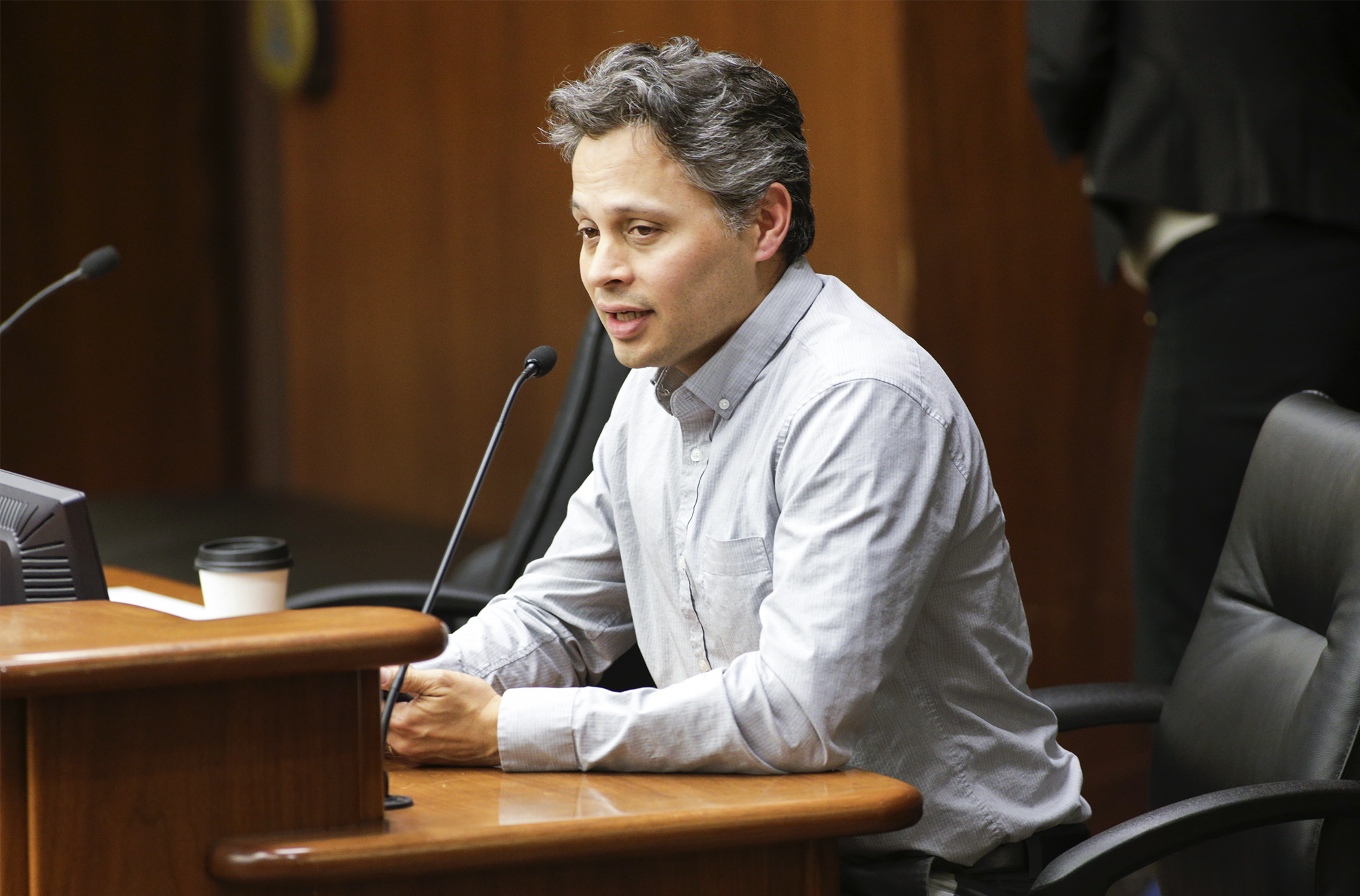Disparities based on race and disability status persist in school discipline

Data shows that Minnesota’s educational outcomes and graduation disparities for students of color are among the worst in the nation.
Correspondingly, black students, Native American students and students with disabilities are far more likely to be suspended or expelled from school for subjective offenses than their white peers.
To better understand the statistics and hear some possible solutions, the House Education Policy Committee held an informational hearing Wednesday on disparities based on race and disability status in school discipline.
“Creating alternatives to suspensions and expulsions — this is when the safety of the schools, the students, the school personnel is not a concern — is really long overdue and essential to reducing educational achievement gaps,” explained Human Rights Commissioner Rebecca Lucero.
Districts and charters provide the Department of Education suspension and expulsion data annually via the Disciplinary Incident Reporting System. Reviewing the past six years of data, Lucero said the Human Rights Department found that 55 percent of all dismissals were based on subjective reasons, such as harassment, bullying, verbal assault, or disorderly conduct, rather than objective reasons like assault or possessing a weapon or drugs.
It concluded that in these subjective instances:
- students with a disability are twice as likely to be suspended or expelled than their white peers;
- students of color are twice as likely to be suspended or expelled;
- black students are eight times more likely to be suspended or expelled; and
- Indigenous students are 10 times more likely to be suspended or expelled.
It also found that while black students accounted for 11 percent of total enrollment in 2016-17, they comprised 38.8 percent of all suspensions. Similarly, special education students were 14 percent of enrollment, but accounted for 42 percent of all dismissals.
Over the course of the six years of data, little to no improvement has been seen in reducing these disparities statewide. However, three superintendents spoke to the initiatives their districts have undertaken to correct the issue and the improvements they’ve seen.
Sandy Lewandowski, superintendent of Intermediate School District 287, highlighted a new safety model the district, a consortium of 12 west metro school districts, implemented in 2017, in which it replaced school resource officers with school safety coaches. The district also put an emphasis on building relationships with students and addressing behavior before it escalates to needing police intervention.
As a result:
- incidents with police involvement decreased by half over two years;
- schools reported fewer arrests, citations and suspensions; and
- culture and safety are on the rise.
Despite serving the highest-need students in the region, the district averaged three suspensions per 100 students enrolled over three school years. The state average is 5.5 per 100.
Given the uniqueness of the intermediate district, Lewandowski indicated the approach may not work well, or be possible, for other schools, and added that dismissal practices continue to be a tool the district relies on.
“Suspensions in our district are not effective in teaching new behaviors and self-regulation, but they do give the adults time to pause and create and improve positive behavior supports and safety plans for students to be more successful,” she said.
Several parents and anti-suspension advocates, including Greg King of ISAIAH, oppose the use of dismissals, saying the practice can infringe on due process rights and often creates an unfair imbalance of power, particularly for families who struggle to navigate the education system.
“Exclusionary discipline is something that we should really think about as a very blunt tool that is being wielded unfairly,” he said, adding that lawmakers should consider legislative changes to reduce the practice.
Related Articles
Search Session Daily
Advanced Search OptionsPriority Dailies
Ways and Means Committee OKs proposed $512 million supplemental budget on party-line vote
By Mike Cook Meeting more needs or fiscal irresponsibility is one way to sum up the differences among the two parties on a supplemental spending package a year after a $72 billion state budg...
Meeting more needs or fiscal irresponsibility is one way to sum up the differences among the two parties on a supplemental spending package a year after a $72 billion state budg...
Minnesota’s projected budget surplus balloons to $3.7 billion, but fiscal pressure still looms
By Rob Hubbard Just as Minnesota has experienced a warmer winter than usual, so has the state’s budget outlook warmed over the past few months.
On Thursday, Minnesota Management and Budget...
Just as Minnesota has experienced a warmer winter than usual, so has the state’s budget outlook warmed over the past few months.
On Thursday, Minnesota Management and Budget...